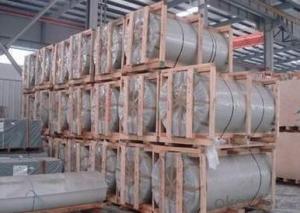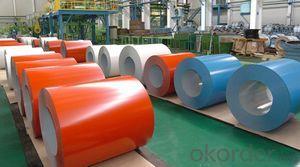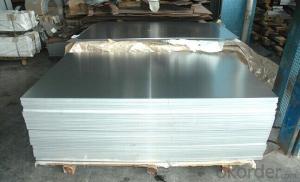AA 1050 coated aluminium coil
- Loading Port:
- China Main Port
- Payment Terms:
- TT OR LC
- Min Order Qty:
- -
- Supply Capability:
- -
OKorder Service Pledge
Quality Product, Order Online Tracking, Timely Delivery
OKorder Financial Service
Credit Rating, Credit Services, Credit Purchasing
You Might Also Like
supply Mill-finished / coated aluminum plate/sheet/ coil:
Alloy: AA1050,1060,1100,1200,2024,3003,3304,3005,3015,5052,5086,5754,5083,6061,7050,7475,8011, etc
Temper: O, H14/16/18/22/24/32/ H112/H321/T6,T851,T7451,T7351, etc
Thickness: 0.02mm—20mm
Width: 100mm—2000mm (Can be slitted)
Notice: PE coating / PVDF coating / Embossment can be done if required.
- Q:Are there any restrictions on the export or import of aluminum coils?
- The export or import of aluminum coils is subject to restrictions that vary depending on the country and specific regulations in place. These restrictions encompass various measures such as export licenses, quotas, and tariffs. Export licenses are often necessary to comply with export control regulations, particularly for sensitive industries or countries. Quotas restrict the quantity of aluminum coils that can be exported or imported within a specific timeframe. Tariffs, on the other hand, involve taxes imposed on imported goods, impacting the cost and competitiveness of aluminum coils in the market. Furthermore, additional restrictions may be imposed concerning quality standards, environmental regulations, or trade agreements between countries. Therefore, it is crucial for individuals or businesses engaged in the export or import of aluminum coils to conduct thorough research and gain a comprehensive understanding of the specific restrictions within their respective jurisdictions. Seeking guidance from legal or trade experts can facilitate navigation through these restrictions and ensure compliance with applicable laws.
- Q:Are aluminum coils suitable for solar reflectors?
- Yes, aluminum coils are suitable for solar reflectors. Aluminum is a widely used material for solar reflectors due to its high reflectivity and durability. It has a reflective surface that can efficiently redirect the sunlight onto the desired target, such as a solar panel or collector. Additionally, aluminum coils are lightweight and easy to shape, making them ideal for creating curved or angled reflector surfaces. The reflective coating on aluminum coils can withstand harsh weather conditions and provide long-lasting performance. Overall, aluminum coils are an excellent choice for solar reflectors due to their reflectivity, durability, and versatility.
- Q:What are the different slitting options for aluminum coils?
- Aluminum coils offer a variety of slitting options to meet specific requirements and end uses. The commonly employed choices for slitting aluminum coils are as follows: 1. Single Slit: The most fundamental and extensively utilized option involves cutting the aluminum coil into two narrower coils with a single cut at the center. 2. Double Slit: This option entails two parallel cuts along the center of the aluminum coil, resulting in smaller widths for each coil. 3. Multi-Slit: Multiple parallel cuts along the center of the aluminum coil allow for the creation of several narrower coils from a wider one. 4. Ribbon Slit: When the aluminum coil needs to be divided into very thin strips, like those used in electrical wiring or packaging, this slitting option is employed. 5. Oscillate Slit: This option suits applications that require varying widths of aluminum strips. The coil is slit in a back-and-forth motion, offering flexibility in producing different widths. 6. Custom Slitting: To accommodate specific project needs, custom slitting options can be employed. This involves tailoring the slitting process to achieve unique widths, lengths, or shapes of aluminum strips. When selecting the appropriate slitting option for aluminum coils, it is crucial to consider the desired application, required dimensions, and the capabilities of the slitting equipment.
- Q:Besides replacing all the aluminum wiring.
- Sorry, but replacing it with copper wiring is the correct solution.
- Q:Can aluminum coils be used in the production of aluminum composite ceilings?
- Yes, aluminum coils can be used in the production of aluminum composite ceilings. Aluminum coils are commonly used as the base material for manufacturing aluminum composite panels, which are then used in various applications including ceilings. The coils are processed and coated to meet the desired specifications and aesthetics of the composite ceiling panels.
- Q:What are the common surface finishes available for aluminum coils?
- Aluminum coils come in various surface finishes, each with its own advantages and aesthetic appeal. One popular option is the mill finish, which is the standard finish applied directly from the mill. It provides a smooth and shiny surface without any additional treatments or coatings. Another common choice for aluminum coils is the anodized finish. This involves an electrochemical process that creates a durable and corrosion-resistant layer on the aluminum's surface. Anodized finishes can be clear or colored, offering a wide range of design options. Painted or coated finishes are also widely used for aluminum coils. This involves applying a layer of paint or coating to enhance appearance and protect against corrosion. The color, gloss level, and texture of painted finishes can be customized to suit different design needs. Brushed finishes are often employed for aluminum coils, creating a pattern of fine lines or scratches on the surface. This unique texture adds visual interest to various applications. Laminating is another option for aluminum coil finishes. It involves applying a thin layer of film or other material to provide additional protection against scratches, UV rays, and other elements. The laminated finish can be glossy or matte, depending on the desired look. In summary, the available surface finishes for aluminum coils include mill finish, anodized finish, painted or coated finish, brushed finish, and laminated finish. Each finish has its own advantages and can be chosen based on specific requirements such as aesthetics, durability, corrosion resistance, and customization options.
- Q:Can aluminum coils be customized?
- Yes, aluminum coils can be customized according to specific requirements. Aluminum coils are highly versatile and can be customized in terms of thickness, width, length, alloy composition, surface finish, and other specifications. This allows for a wide range of applications in various industries such as construction, automotive, aerospace, electronics, and packaging. Customization of aluminum coils can be done through processes like slitting, cutting-to-length, embossing, painting, and coating. This flexibility in customization enables manufacturers to meet the unique needs of their customers and ensures that the aluminum coils are optimized for their intended use.
- Q:Aluminum is directly below Mg. If aluminum is oxidized so readily, then how can we make planes or ships out of it and they don't fall apart after a few months or years?
- Yes aluminum does oxidize just like any other metal. The difference is that aluminum oxidizes the same color as the metal therefore you cannot tell that is oxidizing. Once is oxidizes a little bit, the oxidize protects the metal and it does not oxidize any more.
- Q:Can aluminum coils be used in extreme weather conditions?
- Yes, aluminum coils can be used in extreme weather conditions. Aluminum is a highly durable and corrosion-resistant material that can withstand harsh weather conditions such as extreme heat, cold, humidity, and even heavy rain or snow. It is frequently used in applications where weather resistance is crucial, such as in air conditioning systems, refrigeration units, and outdoor equipment. Aluminum coils are designed to be strong and reliable, making them suitable for use in extreme weather conditions without compromising their performance or longevity.
- Q:What are the different alloys used for aluminum coils?
- There are several different alloys used for aluminum coils, including 1100, 3003, 5052, and 6061. Each alloy has its own unique properties and characteristics, making them suitable for various applications. For example, 1100 is often used for chemical and food processing equipment, while 3003 is commonly used in heat exchangers and cooking utensils. 5052 is known for its high corrosion resistance and is often used in marine and transportation industries. Lastly, 6061 is a versatile alloy used in structural components, aerospace applications, and automotive parts.
1. Manufacturer Overview |
|
|---|---|
| Location | |
| Year Established | |
| Annual Output Value | |
| Main Markets | |
| Company Certifications | |
2. Manufacturer Certificates |
|
|---|---|
| a) Certification Name | |
| Range | |
| Reference | |
| Validity Period | |
3. Manufacturer Capability |
|
|---|---|
| a)Trade Capacity | |
| Nearest Port | |
| Export Percentage | |
| No.of Employees in Trade Department | |
| Language Spoken: | |
| b)Factory Information | |
| Factory Size: | |
| No. of Production Lines | |
| Contract Manufacturing | |
| Product Price Range | |
Send your message to us
AA 1050 coated aluminium coil
- Loading Port:
- China Main Port
- Payment Terms:
- TT OR LC
- Min Order Qty:
- -
- Supply Capability:
- -
OKorder Service Pledge
Quality Product, Order Online Tracking, Timely Delivery
OKorder Financial Service
Credit Rating, Credit Services, Credit Purchasing
Similar products
New products
Hot products
Related keywords





























